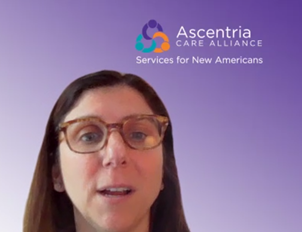Arnie Alpert, for InDepthNH.org
The first Afghan evacuees may arrive in New Hampshire as early as next week, Henry Harris of the International Institute of New England told a group of interested New Hampshire residents Wednesday.
They would be the first of 75 the agency expects to resettle in Manchester and Nashua. The Ascentria Care Alliance, the other resettlement agency that operates in New Hampshire, has committed to resettle 100 people, initially in the Concord, Manchester, and Nashua areas.
Cris Ferrara of Ascentria said her agency expects a family of six to arrive soon.
The 175 Afghans are a tiny part of more than 90,000 evacuees expected nationwide, according to Barbara Seebart from the state’s Office of Refugee Assistance.
The Afghans who have arrived in the country already are mostly being housed in “safe havens” on U.S. military bases, where they are getting health screenings, including COVID tests and vaccines, as well as paperwork that will enable them to seek employment and qualify for a variety of services when they reach their new homes. Seebart said 1600 people a week will be leaving their “safe havens” soon, and that the number may climb to as high as 3000 a week.
Both agencies have elaborate systems to provide support for families, including finding housing, providing English classes, and help finding employment. They also make active use of volunteers for assistance with orientation to their new communities, starting with airport pickups.
“Our country is completely different from other countries” explained Harris, the Managing Director at the International Institute’s Manchester office. “When we welcome a family, we need to onboard them, show them how their apartment works, how their kitchen works, public transportation, all those things that you would need to be successful to navigate your surroundings.”
Support would begin with basic needs, such as providing housing, food, and clothing, and helping families get set up with health care, school enrollment, and English classes.
Ascentria plans to organize Neighborhood Support Teams, groups of volunteers that would expect to provide about 40 hours a week of assistance for each family.
“That would be driving to get groceries, teaching somebody how to drive, showing them the neighborhood, where’s the post office – all of those things that work differently here,” Ferrara said.
Participants in the call, many of whom have their own deep experience assisting immigrants and refugees, expressed eagerness to help. They included representatives of religious groups, groups that already work with African and Bhutanese refugees, a representative of employer groups. The state already has a “host home” network with groups in several regions who work with asylum applicants.
The meeting, held over Zoom, was organized by Welcoming NH, which describes itself as “a coalition of organizations and community leaders from across the state coming together to make New Hampshire more welcoming for everyone, with a particular focus on welcoming immigrants and refugees.”
At its peak, there were 87 people at the meeting, which lasted about 90 minutes.
The Afghan arrivals would come with the status of “humanitarian parolees,” which the speakers emphasized has nothing to do with any history of criminal behavior. It’s better to call them “evacuees,” Seebart explained.
With legal support from the agencies and perhaps some top-down changes for the whole program, their status could be converted to “asylees,” which would put them on a path toward qualification to become U.S. citizens. From a technical or legal perspective, they are not “refugees,” a category of people who have fled their country of origin before being admitted to a new one.
The agency speakers explained that the program is new and, in some ways, different from the refugee settlement processes that they have become accustomed to. For example, refugees are often able to exercise some choice as to the community into which they would be resettled and often are able to move to communities where they have relatives. This program is different they said.
But, Seebart explained, “The State Department historically is very strict about honoring family ties. If somebody does have a family tie in the U.S., they do their very best to place them there.”
“Way more of these parolees have family ties than they had anticipated,” she added.
She also said the program details keep changing, so everyone should expect the resettlement process to look a little different as it unfolds.
To volunteer or donate to support the resettlement efforts, contact IINE here or Ascentria here.





